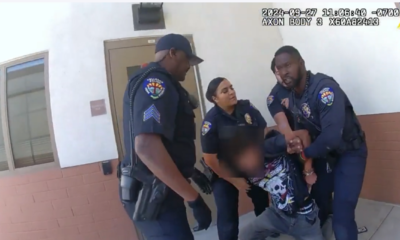Business
Support Local Businesses: Your Ultimate Guide to Holiday Gifting!

As Thanksgiving approaches, the holiday shopping season is set to kick off with Black Friday, a day historically marked by frenzied shopping sprees across the nation.
In years past, scenes of chaotic shopping were common, with shoppers elbowing one another for the latest must-have items. However, those tumultuous days are mostly behind us. Retailers recognized the dangers of the intense competition that often resulted in injuries and even fatalities. Between 2010 and 2021, incidents on this day led to 17 deaths and 125 serious injuries, a grim statistic that negatively impacted both store reputations and the consumer experience.
Today, retailers have adapted their strategies. Instead of one chaotic day, many stores offer deals spread over several days or even weeks. Shoppers can now take advantage of pre-sale options, which allows a more relaxed approach—avoiding the early morning rush and the risk of injury for a discounted item.
The origin of the term “Black Friday” is often misunderstood. While many believe it reflects retailers moving from deficits (in the red) to profits (in the black), the term originally described the chaotic shopping scenes that emerged on the day after Thanksgiving. Philadelphia police coined the phrase in the 1950s, reflecting their struggles to manage the crowds. An effort to rebrand the day as “Big Friday” in 1961 failed, and “Black Friday” eventually became synonymous with shopping frenzy across the country.
Financial projections indicate American consumers are expected to spend a staggering $10.8 billion this Black Friday alone, with substantial amounts designated for Small Business Saturday, Cyber Monday, and the following Tuesday.
For cities like Sedona, Small Business Saturday takes precedence over the frenzy of Black Friday. Initiated by American Express in 2010, this day encourages the support of local businesses, a movement that gained traction with backing from the Small Business Administration. In 2023, Small Business Saturday generated $17 billion in revenue for small businesses, a figure that reflects the importance of supporting local economies.
The trend toward spreading spending over the holiday season is evident, diminishing the singular importance of any one shopping day. Currently, small businesses account for 99.7% of all U.S. businesses and employ nearly half of the country’s workforce. These businesses play a vital role in sustaining local economies.
Supporting local vendors not only benefits individual businesses, but it also maintains a healthy circulation of money within the community. Each local purchase contributes sales tax revenues, which directly fund essential services like road repairs and public infrastructure.
In the coming weeks, local newspapers will showcase ads for Thanksgiving, promotions, and gifts to guide consumers in their holiday shopping. The support of local businesses is essential for maintaining a robust local economy.
















